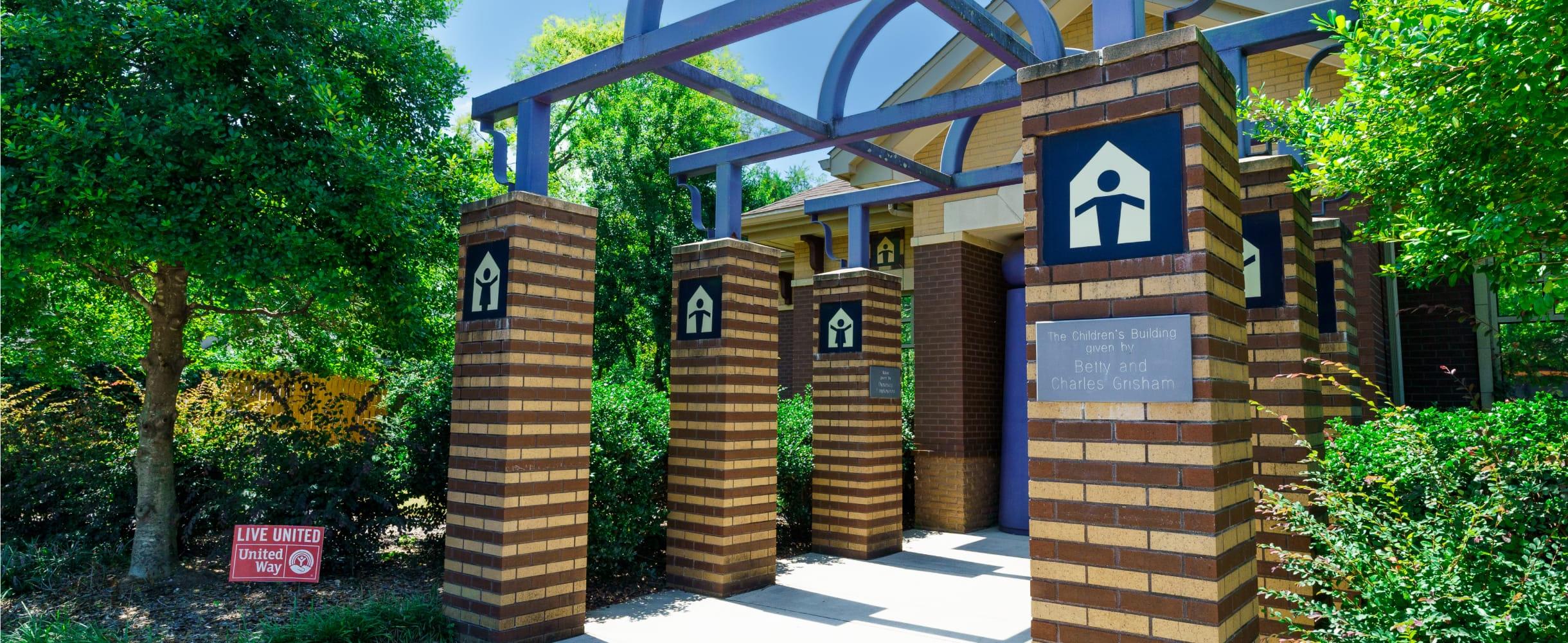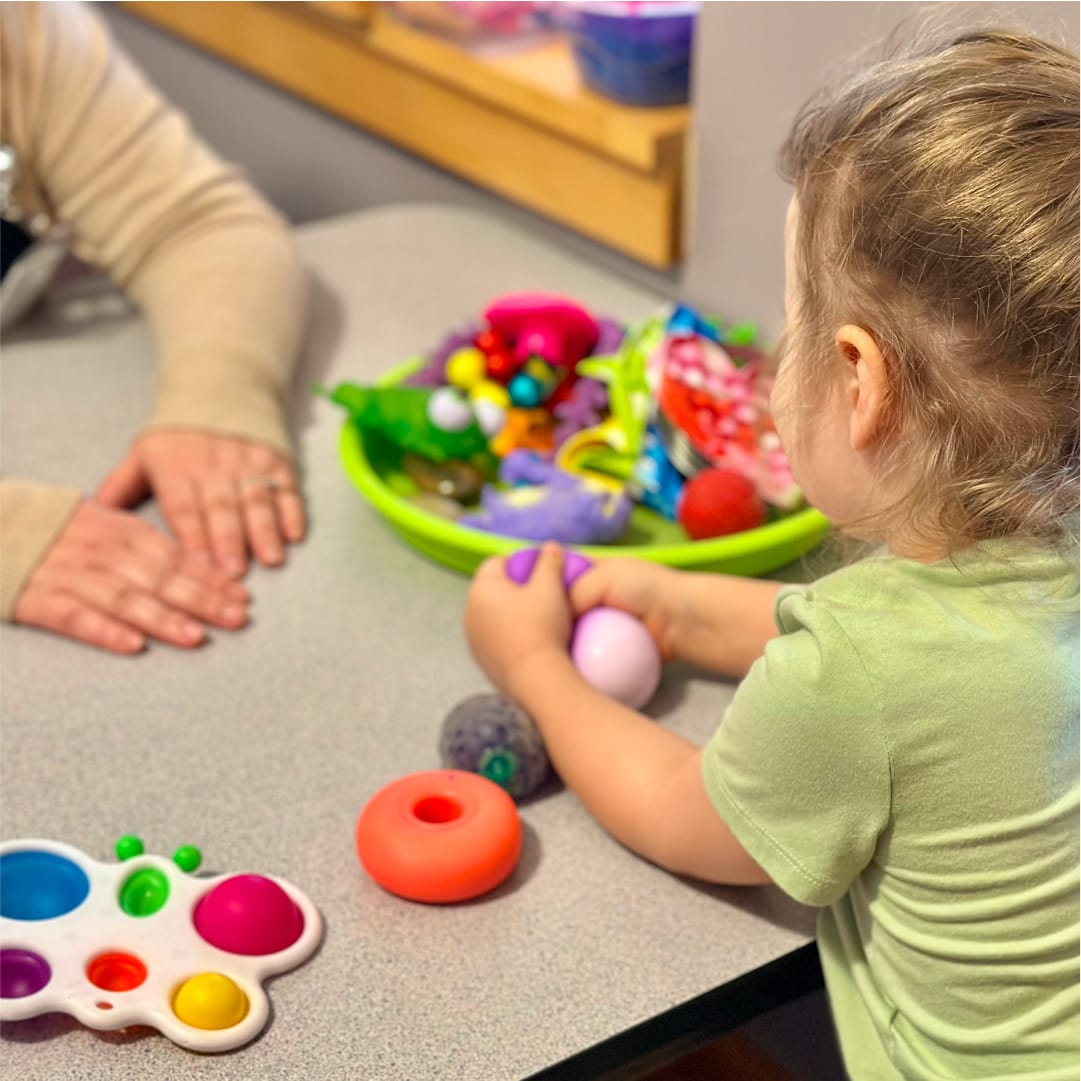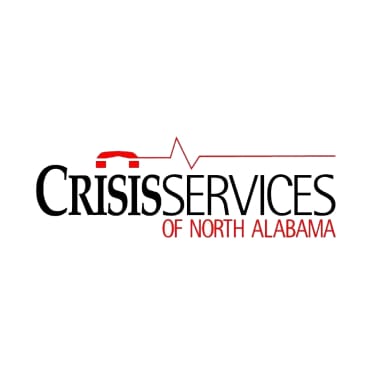Huntsville / Madison County Services

What to Expect
When suspicions or allegations of child physical or sexual abuse are reported, families can feel overwhelmed and confused by the investigative process. Many cases will be handled by the Madison County Multidisciplinary Team (MDT). The MDT is comprised of representatives from the District Attorney’s Office, Law Enforcement, the Department of Human Resources (DHR), child forensic interview specialists, family advocates, therapists, and medical professionals including Crisis Services of North Alabama.
- Initial Visit and Assessment: Upon arriving at the NCAC, caregivers will meet with a family advocate while the child participates in a private session with a forensic interview specialist. During this visit, the child will also be offered a comprehensive medical exam by the NCAC’s pediatrician or nurse practitioner. Additionally, a DHR investigator will assess the child’s safety. If needed, the child may be referred to an NCAC therapist for ongoing support.
- The Investigation Process: After the forensic interview, law enforcement will evaluate whether a crime has occurred. Investigations may take several weeks to conclude. If an arrest is made, the District Attorney’s Office will decide whether the case proceeds to trial. Throughout this process, the NCAC family advocate remains by the caregiver’s side, offering emotional support and helpful resources.
- Our Commitment to Children: The Multidisciplinary Team (MDT) strives to conduct investigations in a child-centered, timely, and professional manner. We serve children under 19 who have experienced sexual abuse, severe physical abuse, neglect, or have witnessed a crime or traumatic event. Importantly, no child is ever denied services due to a family’s financial situation.

Madison County MDT Partners include:
Family Advocacy
Family Advocacy services are provided to the caregivers of children who are seeking services. These services are designed to give support and education to caregivers in a one-on-one setting. The initial meeting typically occurs during the child’s forensic interview. The family advocate will explore case-related needs and provide education about the investigative process. The family advocate will follow up with the caregiver throughout the investigation and beyond if needed.
Caregiver Group Sessions
The NCAC hosts caregiver support group sessions to provide empowerment, connection, and education for caregivers of children who have experienced sexual abuse or other trauma. Topics covered include:
- Understand trauma and its effect on children
- How trauma affects families
- Coping and communication
- Parenting challenges after a child experiences trauma
- Self-awareness and self-care
To learn more or register for the Caregiver Support Group e-mail or call 256-327-3820256-327-3820.

Forensic Interviews
Forensic interview services are offered to children who may have experienced abuse or witnessed a crime or violent incident. The main goal of these interviews is to ensure the safety of your child and protect other children in the community. Forensic interviews are initiated at the request of a Department of Human Resources (DHR) or law enforcement investigator—they cannot be directly requested by caregivers.
A forensic interview is a recorded session conducted by a professional trained in the NCAC Forensic Interview model. These interviews are designed to help investigators understand the child’s experience, using a supportive, non-leading approach. Representatives from agencies involved in the investigation, such as law enforcement and DHR, observe the interview remotely to ensure a thorough and coordinated investigation.
Preparing Your Child for the Interview
Children often feel more at ease when they know what to expect. It can be helpful to explain to your child that someone will be talking with them about what has been reported. Reassure your child that it’s okay to speak openly and that they have your permission to share their thoughts and experiences freely. However, it’s important not to rehearse or guide your child on what to say—let them speak in their own words.

May I Be Present With My Child or the Multidisciplinary Team (MDT) During the Interview?
While it is natural to want to be in the interview to support your child, it is important for the interviewer to talk with your child alone. If your child has experienced abuse, it might be difficult for your child to talk about this in front of you. If your child has experienced abuse, it might also be hard for you to hear the details in that moment. The investigators’ focus must be on your child during the interview, so a family advocate will provide you with support while the interview is taking place, and an investigator will update you after the forensic interview.
Medical Services
A head-to-toe checkup is offered to every child who is suspected to be a victim of abuse. A pediatrician or pediatric nurse practitioner will perform a specialized checkup at the NCAC’s child friendly, non-threatening environment. The checkup is an opportunity to reassure the child that their body is healthy, to answer questions and document any abuse-related findings. The checkup is non-invasive and assesses for injuries, sexually transmitted infection, and pregnancy. You will be asked to provide the family and child’s medical history, if known. The NCAC can help connect the caregiver and child with a pediatrician for routine care if needed.
Children may feel worried, embarrassed, or uncomfortable about their checkup. It is normal for children to feel anxious. The pediatrician or nurse practitioner will take as much time as necessary to help children throughout the medical evaluation by explaining each step of the exam and finding ways to put the child at ease. No child will be forced to participate if they are uncomfortable or it causes distress.
Is the Checkup Required?
We suggest all children undergo a checkup. It is especially important for the child to have a checkup when:
- The child has any visible marks or bruises.
- Abuse to the head or neck was reported, even if there are no marks.
- The abuse involved the child’s private parts.
- The child is 6 years old or younger.
- The extent or type of abuse may be clarified by an examination.
- The child or caregiver has concerns that can best be answered by a medical professional.
- The child or caregiver wants to talk with a medical professional.
- The child would be reassured by an examination.
- The child has not had a well visit within the last year or does not have a pediatrician.

Will the Examination Determine if the Child Has Been Sexually Abused?
Not necessarily. For a variety of reasons, most children have no physical injuries to their private parts. This does not mean that no sexual abuse has occurred. It is possible that children have experienced sexual contact in a way that did not leave lasting physical signs.
Mental Health Support for Children and Teens
At the NCAC, we offer specialized trauma therapy for children up to 18 years old who have experienced trauma. Our evidence-based therapy models are backed by extensive research specific to childhood trauma. After a thorough assessment, a therapist will determine the most effective approach for your child’s healing journey. Caregiver involvement, support, and regular attendance are crucial to your child’s progress.
What to Expect from Therapy
A therapist will contact you to schedule an initial intake session. During this process, you’ll sign consent forms, complete standardized assessments, and provide detailed information to help the therapist understand your child’s needs. According to Alabama law, children aged 14 and older must sign their own therapy consent forms and decide whether any information from their sessions can be shared with their caregivers. The therapist will explain this in detail if your child is 14 or older.
Once the intake is completed, the therapist will recommend the best therapy approach for your child and develop a tailored treatment plan.
Trauma Therapy Process
Trauma therapy sessions will occur weekly and follow a “directive” approach, where the therapist designs activities based on your child’s specific needs. Progress will be regularly evaluated using your input, your child’s feedback, and follow-up assessments. When therapeutic goals are achieved, your child will “graduate” from therapy, celebrating their hard work. If your child requires additional support beyond trauma therapy, we’ll refer them to a community provider for ongoing care.
Caregiver participation is vital throughout the therapy process. You may join certain sessions with your child or meet separately with the therapist before or after the session. It’s important that you remain on-site during your child’s therapy sessions to support their healing journey.
Evidence-Based Treatment Models
Several types of therapy are offered, including:
- Trauma-Focused Cognitive Behavioral Therapy (TF-CBT)
- Eye Movement Desensitization and Reprocessing Therapy, (EMDR)
- Modular Approach to Treatment for Children (MATCH or MATCH-ADTC)
- Child Parent Psychotherapy (CPP)
- Group Therapy










